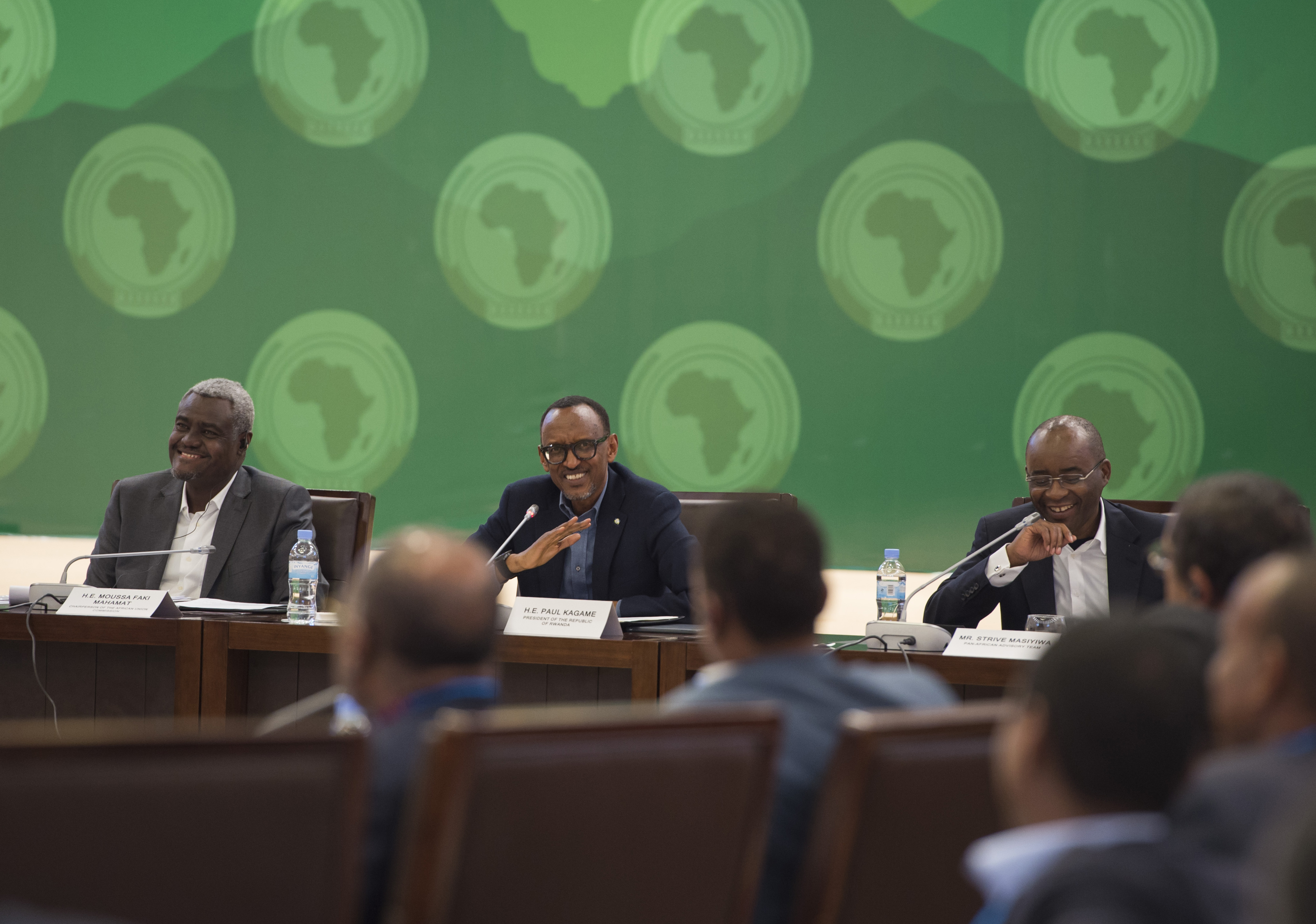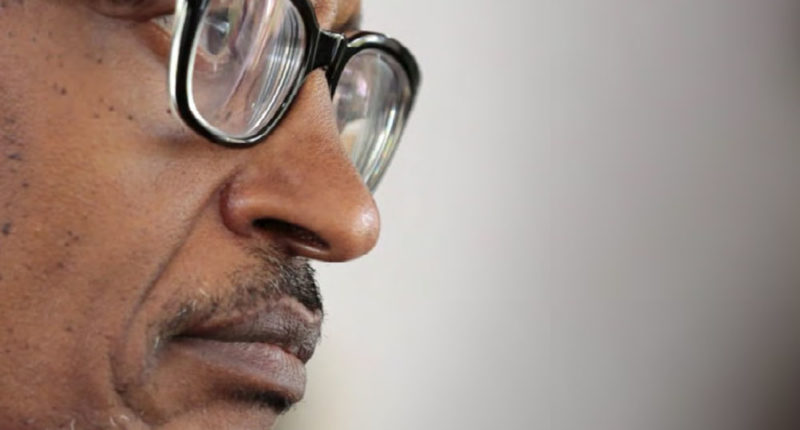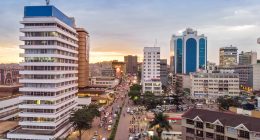Rwandan President Paul Kagame has cultivated an image as a tough and uncompromising leader. Not known as one to back away from a fight, he has won international respect for transforming a country, Rwanda, with very little natural resources, and one of the poorest in the world, into one of the beacons of progress in Africa.
Rwanda under Kagame, has been among the fastest growing economies in the world since 2000, a feat many would have dismissed as “impossible” two decades ago. Back then, the country was covered in the smoldering ashes of a genocide, its smoke raising over the land of a thousand hills, which left a million of its people dead.
Kagame now sets his eyes on an even greater task; reforming the African Union, a continental body that brings together 54 states.
The heads of AU member states agree that the African Union Commission is ripe for reforms. During the July 2016 African Union Summit in Kigali, they tasked Kagame to come up with key reform proposals to complete AU’s institutional restructuring.
The summit endorsed a new financing model initiated by former African Development Bank (AfDB) chief, Donald Kaberuka. He (Kaberuka) proposed that to secure financing for the AU, a 0.2% levy on imports to African countries be instituted. This model is meant to enable AU member states fully fund the functioning of the AU Commission and to cover 75% of programmes that are currently financed by donations from largely the Western world.
Dr. Kaberuka also proposed that each region contribute US$65 million from the import levy for the Peace Fund. If all goes according to plan, this financing model will secure AU financing to fulfill the obligation of covering 25% of peacekeeping operations in Africa.
Focus
From the outset, President Kagame, an enthusiastic champion of self-reliance, implored his peers to mobilise their own resources to scale down the Union’s dependence on donor money.
The reform proposal he presented during the African Union summit in Addis Ababa in late January emphasises the need to focus on key priorities.
“African Union should focus on a fewer number of priority areas which are by nature continental in scope, such as political affairs, peace and security, economic integration (including the Continental Free Trade Area), and Africa’s global representation and voice,” Kagame said. “There should be a clear division of labour between the African Union, Regional Economic Communities, Regional Mechanisms (such as IGAD), Member States, and other continental institutions, in line with the principle of subsidiarity.”
H.E Paul Kagame
Birthed in 2002 to replace the first continental block, the Organisation of African Union (OAU), the African Union (AU) has passed over 1500 recommendations but implementation remains a nightmare.
With clarity of focus, Kagame argued that an understandable rationale would emerge to guide the process of re-aligning the African Union’s dozens of distinct structures and institutions in terms of efficiency and ability to deliver. He said an audit of bureaucratic bottlenecks and inefficiencies that impede service delivery should be conducted, and recommendations acted upon without delay.
More critical is the proposal that the commission’s senior leadership team should also be lean and performance-oriented.
Kagame proposed that the Commission’s structures should be evaluated, to ensure that they have the right size and capabilities to deliver on the agreed priority areas and that certain organs and institutions at the secretariat require special attention. For instance, he pointed out New Partnership for Africa’s Development (NEPAD), which has been incorporated into the Commission as a technical body but has not been fully integrated.
“NEPAD should be fully integrated into the Commission, possibly as the African Union’s development agency, aligned with the agreed priority areas, and underpinned by an enhanced results-monitoring framework,” he said. The Rwandan leader also proposed the Union’s Peace and Security Council should also be strengthened to ensure perfection of its working methods as well as role in conflict prevention and crisis management.
H.E Paul Kagame
Kagame also underscored fast-tracking full implementation of the Kigali funding resolution, arguing that it will underpin the union’s independence and dignity and the ability to set Africa’s own agenda. When countries start paying, Kagame argued, they will automatically become more concerned about getting good value for money.
“Our programmes are 97 per cent funded by external donors and as of December 2016, less than half of member states had paid their assessment in full. We all have to contribute our fair share to ensure that the African Union stays focused on our interests and priorities,” he said. “The current scale of contributions should be revised based on the principles of ability to pay, solidarity, and equitable burden-sharing, to avoid risk concentration.”
H.E Paul Kagame
But many diplomats and researchers have argued that reforming the African Union though inevitable is an insurmountable task. In response to Kagame’s reform proposals, Institute for Security Studies (ISS) researcher, Yann Bedzigui, penned an article arguing that though proposed reforms are urgent, there are no guarantees that they would be implemented. “There is a risk of heads of state trying to fast-track a complicated process and using a top-down approach that could undermine the process from the start.”
He refers to the 2007 AU assembly in Accra, Ghana, that appointed a panel chaired by Professor Adebayo Adedeji, former executive secretary of United Nations Economic Commission for Africa (UNECA), to audit the various organs of the AU and propose recommendations. The panel then made 172 recommendations to improve the effectiveness of the African Union Commission but none of them has been fully implemented.
“It is important to note that reform cannot be fast-tracked,” says Mr Bedzigui. To him, reforming a public organization – and more importantly, an international one – takes time. “Such a process should be done over a longer period and involve various stakeholders. Time should be given to assess the far-reaching implications of the proposals.”
As the African Union reform discussion gained momentum, Ambassador Vijay Makhan, a former Assistant Secretary General of the OAU, Commissioner of the African Union and Foreign Secretary of Mauritius, argued at its birth in 2002, that the vision of the African Union was defined as that of an Africa driven by its own citizens, a dynamic force in the global arena.
He said the excitement and elation triggered by the birth of the AU have evaporated and the organization, much like its predecessor, has been turned, “regrettably, into an institution falling within the exclusive ambit of the official establishment.”
Ambassador Makhan disagrees with Mr Bedzigui assertion that African Union reform shouldn’t be fast-tracked. He observed, “Without doubt, the transformation process needs to be accelerated most urgently, and this will not happen by chance…if the African Union we seek is to become a reality, it must be a union of the people of Africa and not just a union of African states and governments.”
Implementation
Kagame is already thinking about implementation. At the end of February, he convened a meeting of the reform team in Kigali chiefly to come up with an implementation plan.
This was followed by another consultative meeting at the beginning of May in Kigali, in which the Chairperson of the AU Commission Moussa Faki Mahamat and President Paul Kagame met with members of the Permanent Representative Council (PRC) and the Executive Council of the African Union to discuss the progress on implementation of the AU reforms ahead of the 29thAfrican Union summit.

He is cognizant that African Union should come up with a fundamentally different implementation approach. “To complete the institutional reform of the African Union, the crisis of implementation must first be addressed…” he said.
For a man who has had to climb mountain improbable to dig his own country out of the abyss, the jury is still out on whether he can produce the same results with the reform process at the African Union.









